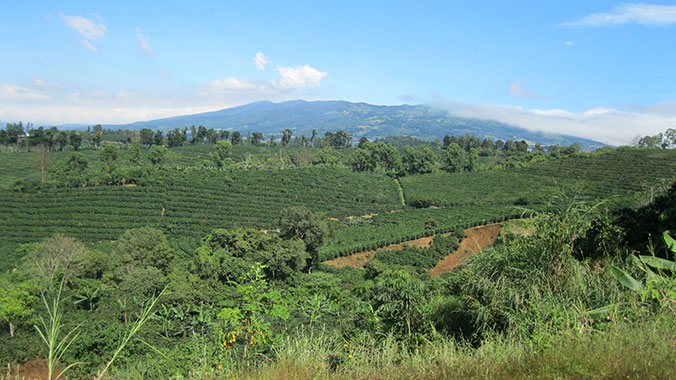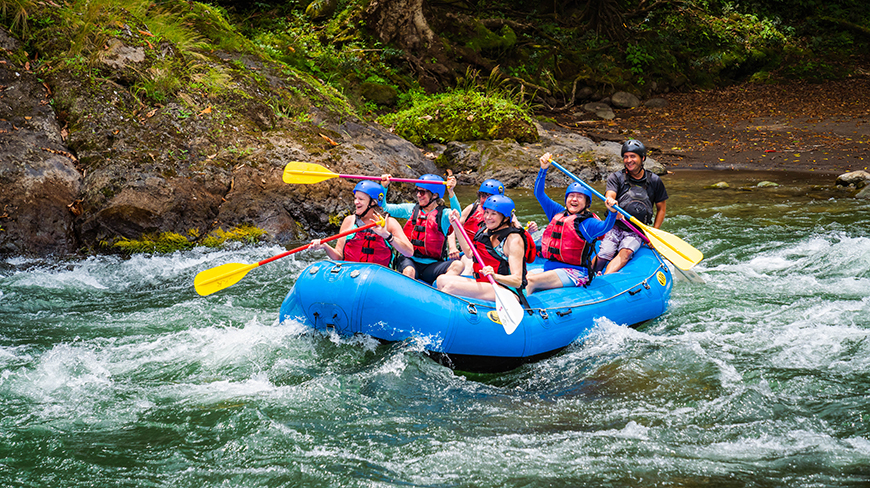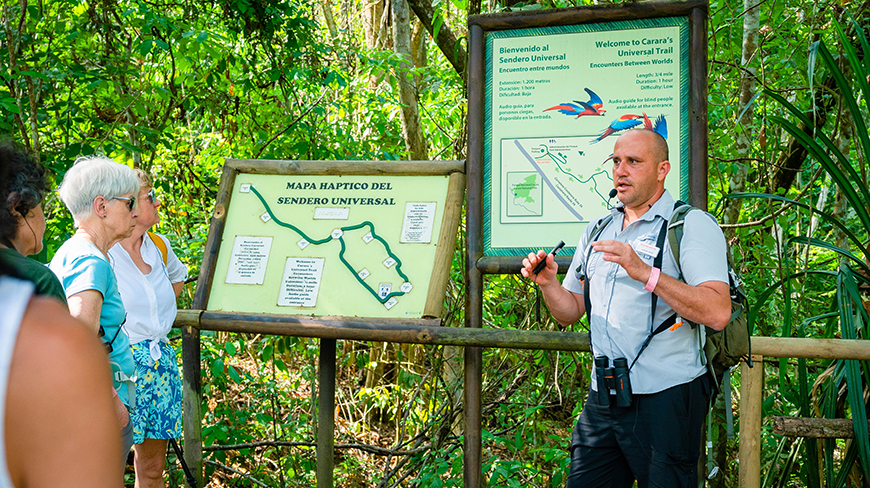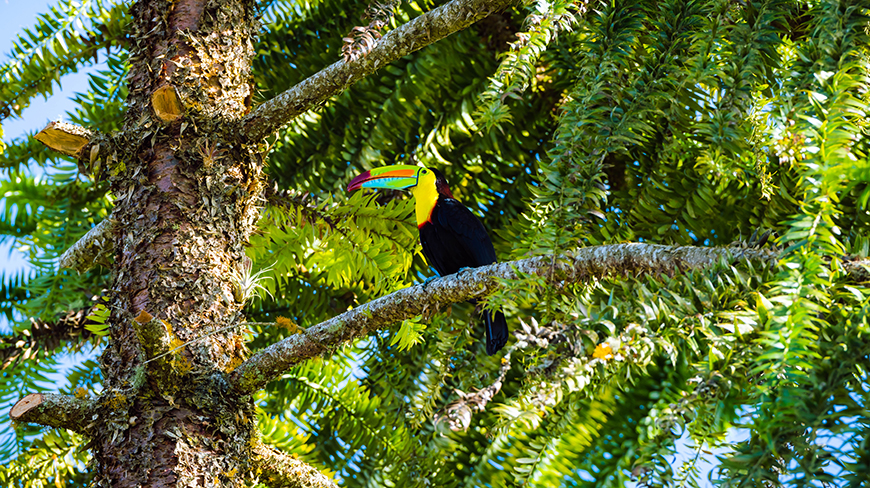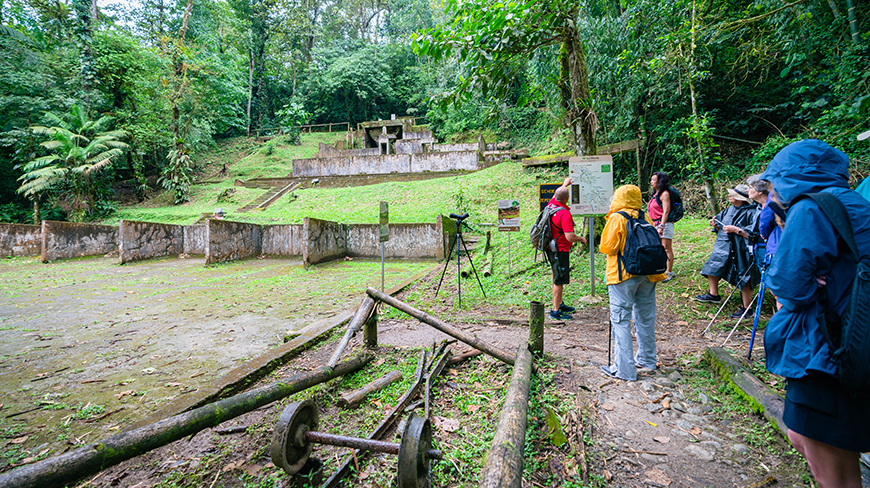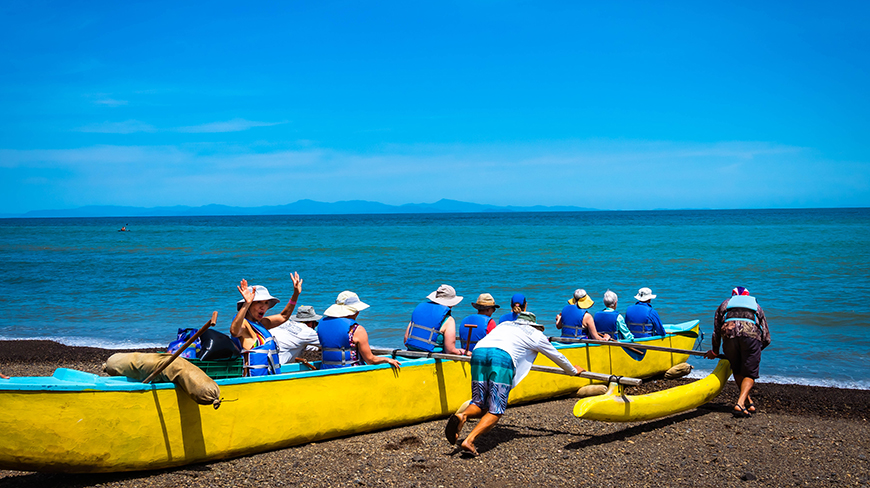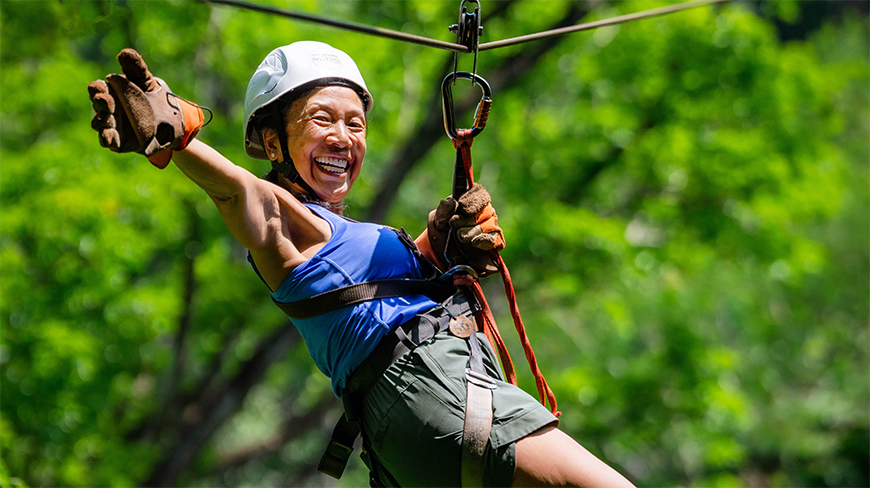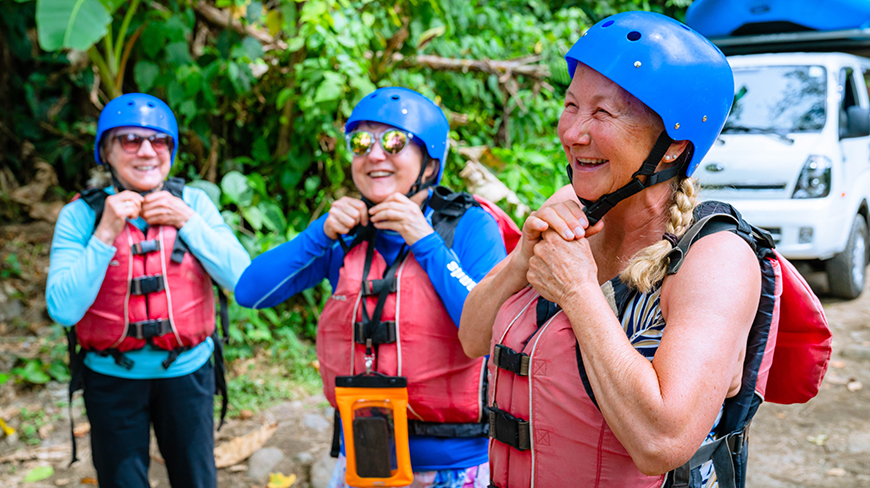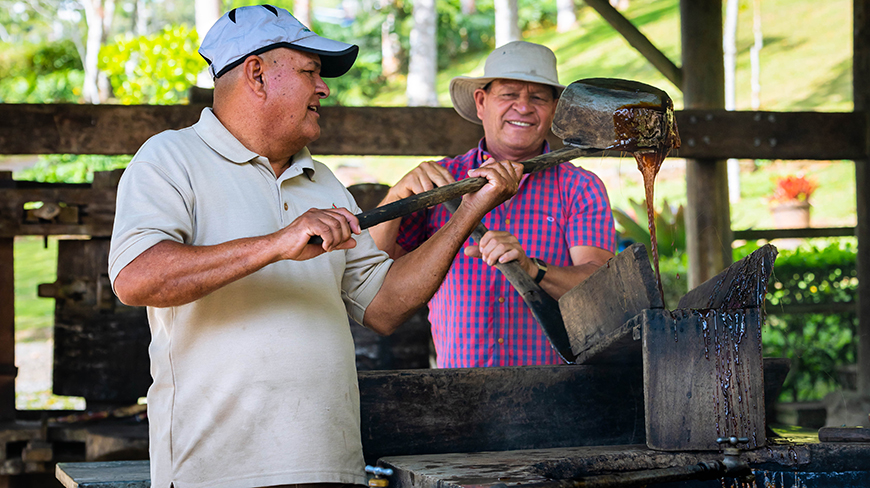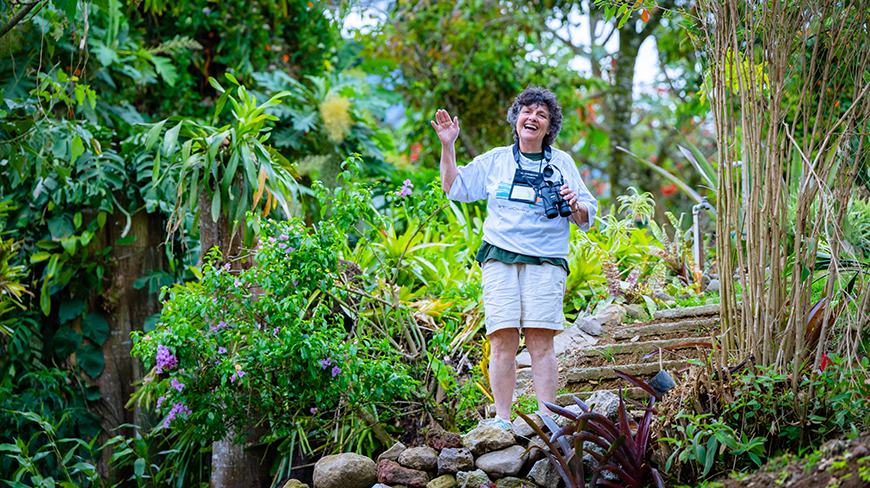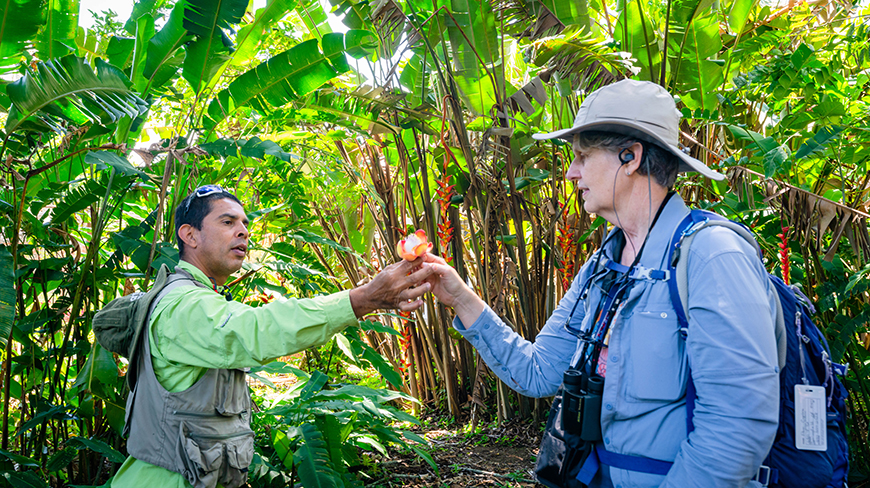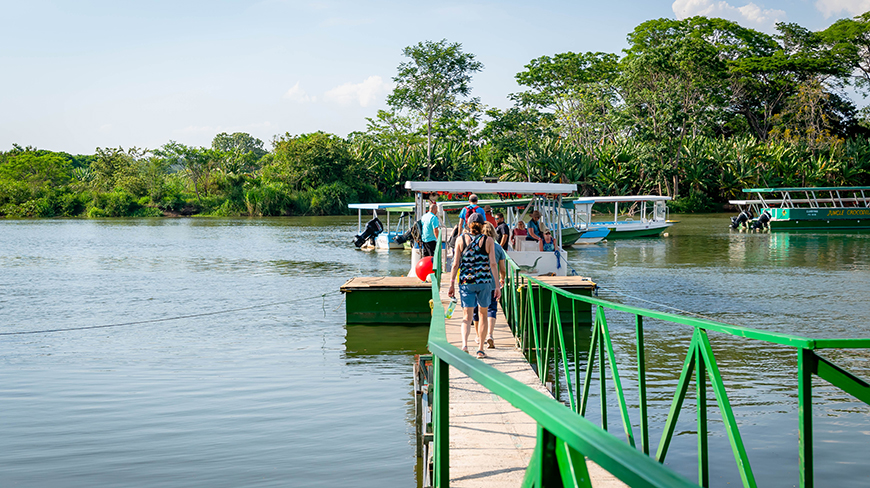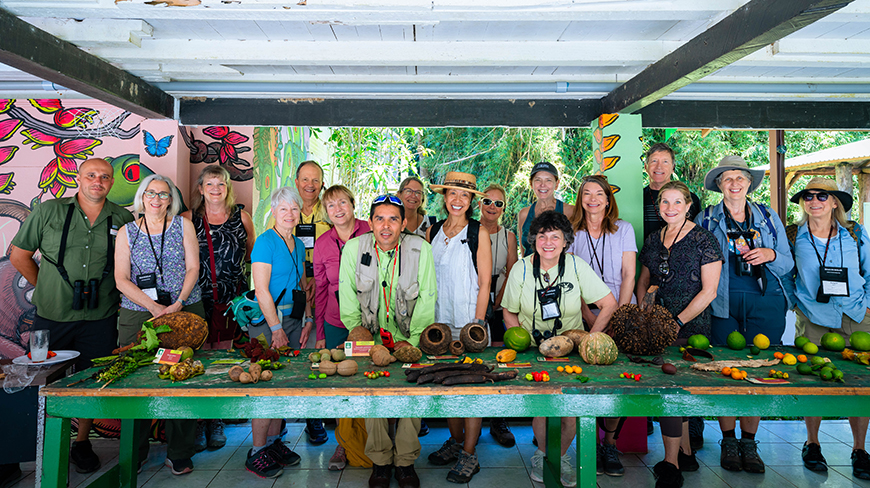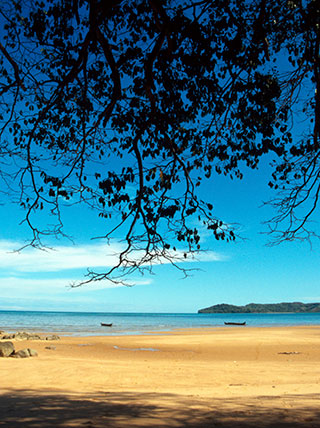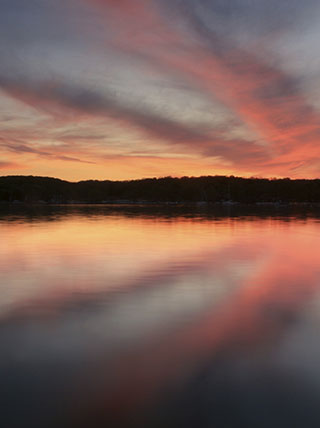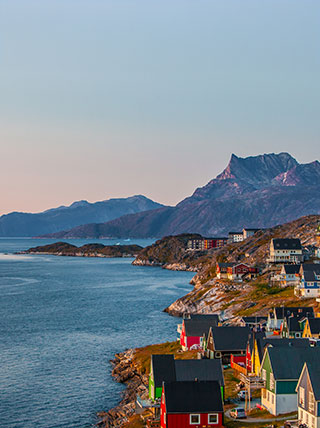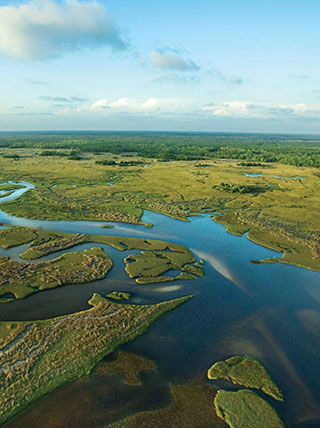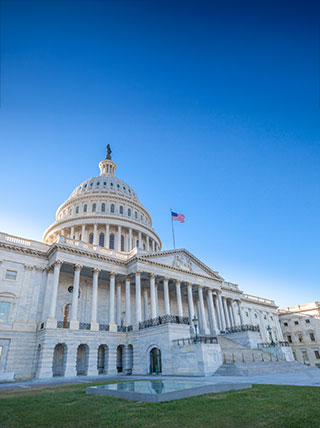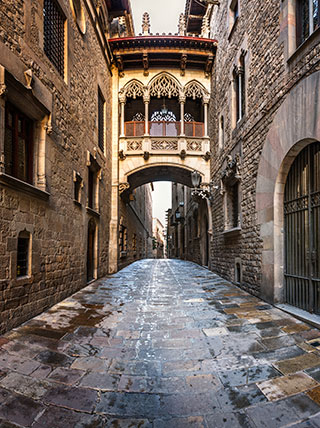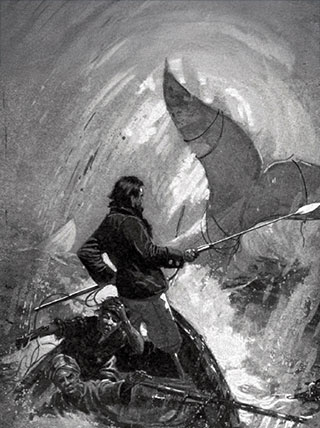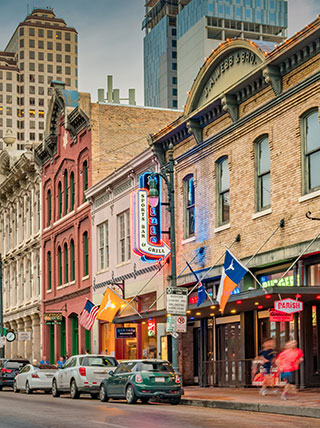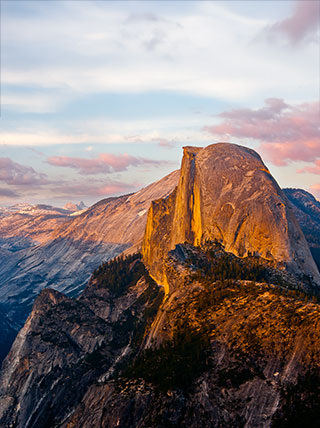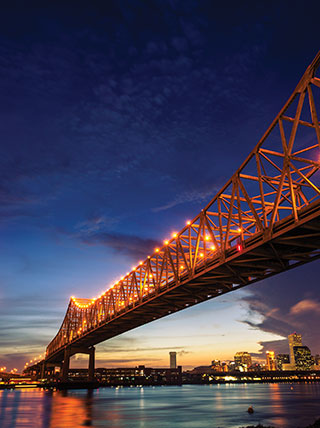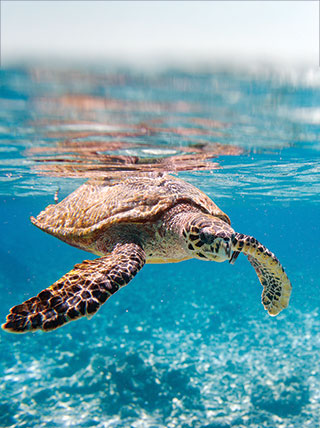Costa Rica
Rim to Shore: Costa Rica Multi-Sport Adventure
Program No. 19243RJ
Come discover the meaning of “pura vida” and see why there’s no better place to raft, hike, kayak and learn authentic Latin dance than the protected waters and lands of Costa Rica.
Enroll with Confidence
We want your Road Scholar learning adventure to be something to look forward to—not worry about. Learn more
Protecting the Environment
We offset a portion of the emissions created by your travel. Learn more
Itinerary
While we make every effort to ensure the accuracy of our published materials, programs are typically advertised more than a year prior to their start date.
Read More.
While we make every effort to ensure the accuracy of our published materials, programs are typically advertised more than a year prior to their start date. As a result, some program activities, schedules, accommodations, personnel, and other logistics occasionally change due to local conditions or circumstances. Should a major change occur, we will make every effort to alert you. For less significant changes, we will update you during orientation. Thank you for your understanding.
Duration
11 days
10 nights
What's Included
29 meals (
10B, 9L, 10D
)
3 expert-led lectures
17 expert-led field trips
1 hands-on experience
An experienced Group Leader
10 nights of accommodations
Taxes and customary gratuity
Road Scholar Assurance Plan
Day
1
In Transit to Program, Arrive San José, Orientation
Location:
San José
Meals:
D
Stay:
Radisson Hotel San José - Costa Rica
Activity Note
Hotel check-in from 3:00 p.m. See your program’s “Getting There” information regarding transfers. Remember to bring your nametag (sent previously).
Afternoon:
Orientation: 6:00 p.m. at the hotel. The Group Leader will greet everyone with a warm welcome and lead introductions. We will review the up-to-date program schedule and any changes, discuss roles and responsibilities, logistics, safety guidelines, emergency procedures, and answer any questions you may have. Meals on our program feature local cuisine. Unless otherwise specified, transportation during your program will be provided by air-conditioned bus. Our buses do not include onboard toilets, so we have scheduled stops during drives for bathroom breaks. Free time is reserved for your personal independent exploration. Please note that program activities, schedules, and personnel may need to change due to local circumstances. In the event of changes, we will alert you as quickly as possible. Thank you for your understanding.
Dinner:
At the hotel, we'll have a Welcome Dinner.
Evening:
At leisure. Continue getting to know your fellow Road Scholars, settle in, and get a good night’s rest for the day ahead.
Day
2
Hiking in Poas Volcano National Park, Coffee Plantation
Location:
San José
Meals:
B,L,D
Stay:
Radisson Hotel San José - Costa Rica
Activity Note
Getting on/off a bus; driving about 56 miles, approximately 3.5 hours. Elevation at volcano 8,900 feet; walking approximately 1.5 miles including walk to craters, lake, forest; paved trails, steps; wear sunblock, bring jacket/rain gear. Elevation at coffee plantation 4,500 feet; walking approximately 3/4 mile.
Breakfast:
At the hotel.
Morning:
After checking out of the hotel, we will board the bus and transfer to Poas Volcano National Park, the oldest designated National Park in Costa Rica. We’ll walk on trails in Poas National Park and view one of the world’s largest active craters and crater lake. We will also get to encounter four different types of habitats, including a tropical rainforest . Poás Volcano is an active stratovolcano in central Costa Rica which has erupted 39 times since 1828. Poás volcano is a powerful symbol of the geothermal forces that formed Costa Rica. When the mist and clouds part you'll see the sulfuric, bubbling, green rain fed lake at the bottom, surrounded by smoke and steam rising from fumaroles. Water from the lake is constantly seeping through cracks in the hot rock, evaporating and building pockets of steam. When the pressure in these pockets exceeds the weight of the water above, the steam breaks through in geysers that rocket up to 820 feet (250 meters) high. Don't worry about getting a shower though, the crater is 1,050 feet (320 meters) deep. At almost a mile (1.6 km) across it's also one of the largest active craters in the world. The most recent period of eruptive activity ended in 1954. The last major activity was in 1910 when nearly a million tons of ash was ejected along with an immense column of smoke and steam.
Lunch:
At Doka Estate.
Afternoon:
Next, we’ll ride to a coffee plantation perched on the slopes of the Central Valley. During our visit, we will experience first-hand the production and harvesting processes of the plant and roasting of the bean. We will also learn about the history of the estate, its owners, the production and varieties of plants at the estate, the geography of the area, and the traditional ways of cultivating the grain. We’ll also get to walk between the rows of the coffee bushes in a symbolic coffee picking exercise and sample the freshly ground coffee. After the coffee experience, we will ride back to our hotel. We’ll gather before dinner for a presentation by a local expert on the History of Costa Rica.
Dinner:
At the hotel.
Evening:
At leisure. Prepare for check out and transfer in the morning.
Day
3
Transfer to Turrialba Area, La Marta Wildlife Reserve
Location:
Turrialba
Meals:
B,L,D
Stay:
Guayabo Lodge
Activity Note
Getting on/off a bus; driving about 44 miles, approximately 2.5 hours. Walking up to 3 miles, approximately 2.5 hours; undulating forests trails.
Breakfast:
At the hotel.
Morning:
After checking out of the hotel, we will board the bus and transfer to the Turrialba area via Cachi and Tucurrique. On the way, we will stop for a field trip at La Marta Wildlife Refuge. We’ll accompany our Group Leader on an exploratory walk along forest trails, passing by rivers and the ruins of an old settlement containing an old carbide mine, coffee and sugar cane operations. In addition to being part of La Amistad Biosphere Reserve and International Park—a UNESCO-designated World Heritage Site— La Marta Wildlife Refuge is also the nation’s first private wildlife refuge. From the UNESCO inscription: “The location of this unique site in Central America, where Quaternary glaciers have left their mark, has allowed the fauna and flora of North and South America to interbreed. Tropical rainforests cover most of the area. Four different Indian tribes inhabit this property, which benefits from close co-operation between Costa Rica and Panama.”
Lunch:
At La Marta Wildlife Refuge
Afternoon:
Back aboard the bus, we will continue our ride to the lodge and check in with some time to freshen up and relax. We’ll gather before dinner for a presentation by a local expert on the Natural History of Costa Rica.
Dinner:
At the hotel.
Evening:
At leisure.
Day
4
CATIE Research & Education Center, Hacienda Sitio de Mata
Location:
Turrialba
Meals:
B,L,D
Stay:
Guayabo Lodge
Activity Note
Early morning (pre-breakfast) birding walk around hotel grounds. Getting on/off a bus; driving about 36 miles, approximately 2 hours throughout the day. Walking about 3 miles throughout the day; city sidewalks, trails of grass and dirt.
Breakfast:
At the lodge, after our early birding walk.
Morning:
We’ll board our bus and ride to the Tropical Agronomic Research and Educational Center (CATIE) for an expert-led botanical garden exploration with commentary. CATIE is a regional center dedicated to research and graduate education in agriculture, management, conservation, and sustainable use of natural resources.
Lunch:
At the CATIE cafeteria.
Afternoon:
Next, we’ll ride to Hacienda Sitio de Mata for demonstrations focusing on sugar cane and macadamia. We’ll have an opportunity not only to learn, but relax, have some coffee and pastries, and take photos. On our ride back to the lodge we will make a stop at the town of Turrialba. There we'll learn about the community's historical development as we accompany our Group Leader on an exploratory walk along its streets. We’ll return to the lodge with time to freshen up and relax before dinner.
Dinner:
At the lodge.
Evening:
At leisure.
Day
5
Guayabo National Monument, River Trail Walk
Location:
Turrialba
Meals:
B,L,D
Stay:
Guayabo Lodge
Activity Note
Getting on/off a bus; driving about 12 miles, approximately 1 hour throughout the day. Walking about 2.5 miles, approximately 3 hours; trails of dirt and grass.
Breakfast:
At the lodge.
Morning:
We’ll board the bus and ride to Guayabo National Monument, the site of an ancient ruin that sits on the southern slope of the Turrialba Volcano. The settlement was built in 1000 BCE and continuously occupied until 1400 CE when it was mysteriously abandoned. The Guayabo Monument is believed to have been an important political, cultural, and ceremonial center during the pre-Columbian era in Costa Rica. With our Group Leader, we will walk through the Monument. In addition to learning more about this special place, we’ll have good outdoor exercise.
Lunch:
At a local restaurant.
Afternoon:
Returning to the lodge, we’ll head out with our Group Leader for a nature walk on the lodge grounds. We’ll return to the lodge with time to freshen up and relax before dinner.
Dinner:
At the lodge.
Evening:
At leisure. Prepare for check-out and transfer in the morning.
Day
6
Transfer to Sarapiqui, White Water Rafting
Location:
Sarapiqui
Meals:
B,L,D
Stay:
Selva Verde Lodge
Activity Note
Getting on/off a bus; driving about 90 miles, approximately 3 hours throughout the day. Getting on/off river rafts. Rafting Class I and II whitewater rapids. Class I: Moving water with a few riffles and small waves; few or no obstructions. Class II: Easy rapids with smaller waves, clear channels that are obvious without scouting; some maneuvering required. Degrees of difficulty vary based on local conditions including water levels. Sturdy water shoes required; no flip-flops.
Breakfast:
At the lodge.
Morning:
Checking out of the hotel, we’ll board the bus and ride from Turrialba to Sarapiquí in the Chilamate Valley, an area with one of the highest degrees of biodiversity in Costa Rica. A number of forests serve as migratory corridors for the more than 400 different species of birds that have been recorded in the area. Sarapiquí’s economy is based on eco-tourism, scientific research, small-scale ranching, and large pineapple and banana plantations. En route, we’ll stop for a whitewater rafting field trip at the Pacuare River. Everyone will be fitted with life jackets, helmets, and paddles. Before the activity can take place, the rafting guides will review safety procedures, what to expect during the field trip, and answers any questions. The Pacuare is one of the world’s top whitewater river rafting adventures. It flows down a long gorge and canyon through primary and secondary rainforest of the Talamanca Mountains. When rafting down the river, we will have the feeling of being isolated in a lost world. Waterfalls pour in from high rock walls, brightly colored toucans and electric Blue Morpho butterflies fly by, and sometimes the chirping cicadas are so loud we can’t hear anything else.
Lunch:
At a restaurant en route.
Afternoon:
We’ll continue on our way to Sarapiqui. Upon arrival, we’ll check in to the lodge with some time to freshen up and relax.
Dinner:
At the lodge.
Evening:
At leisure. Prepare luggage for a morning check-out.
Day
7
Rainforest Hiking, El Ganador, Puerto Viejo River Kayaking
Location:
Sarapiqui
Meals:
B,L,D
Stay:
Selva Verde Lodge
Activity Note
Hiking up to 2 miles, approximately 3 hours; uneven, unpaved trails, some steep inclines, potentially muddy. Wear sturdy, closed-toe, hiking shoes; hiking poles and insect repellent recommended. Getting in/out of kayaks. Sturdy water shoes required; no flip-flops.
Breakfast:
At the lodge.
Morning:
We’ll hike into the heart of the rainforest and pay homage to El Ganador — Spanish for “winner” — a giant almond tree that towers above the canopy. When the Spanish arrived in the late 1440s, it was already mature. El Ganador is enormous, standing 117 feet (54 meters) high and 46 feet (14 meters) in circumference. A keystone species, the Almendro tree (Dipteryx panamensis) is a critical part of the endangered Great Green Macaw’s habitat. The life span for this award-winning tree is estimated to be another one or two centuries. What life secrets would you ask a 600-year-old tree that is still standing strong?
Lunch:
At the lodge.
Afternoon:
We’ll meet by reception and board a bus that will take us to the Puerto Viejo River for our kayaking adventure. After a safety lesson by a local expert we’ll get into our kayaks. We’ll take a few minutes to familiarize ourselves with the kayaks, paddling around near shore, before setting out along the waterways of Sarapiqui River. This activity optimizes our opportunities to view wildlife in their natural habitat with minimum disturbance to the environment. Keep your eyes open for birds, monkeys, lizards, and more. At the conclusion of the activity, we’ll return to the starting point, disembark the kayaks and return to the lodge by bus. Upon arrival, we’ll take time to freshen up and relax. Before dinner we'll join a few members of the local community in some Latin dancing. We'll learn the basic steps and styles while getting some cardio exercise!
Dinner:
At the lodge.
Evening:
At leisure. Prepare luggage for a morning check-out.
Day
8
Nature Walk, Transfer Central Pacific, Carara National Park
Location:
Central Pacific Coast
Meals:
B,L,D
Stay:
Hotel Punta Leona
Activity Note
Getting on/off a bus; driving about 114 miles, approximately 3.5 to 4 hours. Walking on irregular terrain, some inclines, paved and unpaved surfaces. Hiking about 2 miles; relatively level paved and unpaved trails; high temperatures and humidity.
Breakfast:
At the lodge.
Morning:
We’ll wake up our muscles and delight our senses on a nature walk around the grounds at Selva Verde as our Group Leader points out exotic plants and wildlife. We’ll then check out and begin our transfer from the Caribbean lowlands to the Pacific Coast and our hotel. We’ll have a stop along the way to stretch our legs.
Lunch:
En route.
Afternoon:
Next, we'll visit Carara National Park. The park protects primary and secondary transitional rainforest habitats as well as aquatic habitats. Carara is also the last natural nesting site for the endangered Scarlet Macaw. As it is connected with some of the forested mountains and hillsides on the Western Slope of Talamanca Range, the park is an important biological corridor for many of the species that seasonally move from the lowlands to the highlands and vice-versa. We’ll learn about the transitional forest then begin our walking field trip with stops at key spots for natural history interpretation of the ecology and other forest dynamics. Then we’ll continue to the hotel for checking in and relax until dinner. We'll accompanying our Group Leader on an orientation to the property.
Dinner:
At the hotel.
Evening:
At leisure.
Day
9
Canopy Zipline, Tarcoles River Boating
Location:
Central Pacific Coast
Meals:
B,L,D
Stay:
Hotel Punta Leona
Activity Note
Getting on/off a bus; driving about 45 minutes each way. Zipline introduction and safety talk conducted by local experts; safety gear provided; shoes with closed heel/toe required. Getting on/off an excursion boat; boat ride on Tarcoles River is tide dependent.
Breakfast:
At the hotel.
Morning:
We’ll set out by bus on a field trip to the Vista Los Sueños Canopy amid 80 acres of lushly forested lands in Herradura, next to Jaco Beach on the Central Pacific Coast of Costa Rica. Bilingual experts will explain safety procedures and instructions. We’ll then whiz along a zipline through the forest canopy with remarkable views of the surrounding area as well as birds and other wildlife that may be present.
Lunch:
At a local restaurant.
Afternoon:
Next, we’ll take a boating field trip on the Tárcoles River with our Group Leader assisted by the boat captain. The Tárcoles River basin empties the entire western side of the Central Valley in the Pacific coastal region. It includes an area of mangrove swamps and an estuary that create a rich habitat for wildlife. We’ll be on the lookout for residents including crocodiles (Crocodilus acutus), often seen sunning themselves on the muddy river banks. Returning to the hotel, we will have some time to freshen up and relax. We’ll gather before dinner for a presentation by a local expert on the Ecology of the Scarlet Macaw.
Dinner:
At the hotel.
Evening:
At leisure.
Day
10
Outrigger Canoe Paddling, Free Time
Location:
Central Pacific Coast
Meals:
B,L,D
Stay:
Hotel Punta Leona
Activity Note
Getting on/off a bus; driving about 40 minutes each way. Getting in/out of outrigger canoes with life jackets; short walk to beach to board canoes; paddling.
Breakfast:
At the hotel.
Morning:
For our next field trip, we’ll ride to the small coastal village of Agujas for an outrigger canoe paddling field trip. Canoes have been helping people of the world traverse waterways for centuries. They have been tools of transportation, recreation, and survival. Though canoes are now built of fiberglass instead of wood, the design has undergone few modifications through the years. As we dip our paddles into the water, we are creating a link from our modern world to the ancient one.
Lunch:
At the beach, picnic style.
Afternoon:
Free Time. This period of time has been set aside for your personal independent exploration to see and do what interests you most. The Group Leader will be happy to offer suggestions. Please note that the period scheduled for free time is subject to change depending on local circumstances and opportunities for independent exploration. The resort’s 750 acres include a wildlife reserve hosting hundreds of indigenous flora and fauna species and two beaches, one white sand and the other gray. They are the only beaches in Costa Rica with 3 Blue Flags & Triple A Rating for their water quality, cleanliness, and level of safety for swimmers.
Dinner:
At the hotel. Share favorite experiences and enjoy camaraderie with new Road Scholar friends during our farewell dinner.
Evening:
At leisure. Prepare for check-out and departure in the morning.
Day
11
Program Concludes, In Transit From Program
Location:
In Flight
Meals:
B
Activity Note
Getting on/off a bus; driving about 50 miles, approximately 2 hours riding time to airport. When booking international flights, do not select a departure flight that leaves San José any earlier than 12:30 p.m. Hotel check-out by 11:00 a.m. See your program’s GETTING THERE information regarding transfers.
Breakfast:
At the hotel (depending on flight times). Take-away breakfasts available upon request.
Morning:
There will be one early morning transfer to San Jose’s international airport included in the program cost. This concludes our program. If you are returning home, safe travels. If you are staying on independently, have a wonderful time. If you are transferring to another Road Scholar program, detailed instructions are included in your Information Packet for that program. We hope you enjoy Road Scholar learning adventures and look forward to having you on rewarding programs in the future. Don’t forget to join our Facebook page and follow us on Instagram. Best wishes for all your journeys!
Please select a day to update the map
Map details are not available for this location.
Please Note:
This program has itinerary variations on certain dates.
Dec 08, 2026 - Dec 18, 2026 (San José to Central Pacific Coast)
Jul 05, 2025 - Jul 15, 2025 (San José to San José)
Jul 13, 2025 - Jul 23, 2025 (San José to San José)
Oct 07, 2025 - Oct 17, 2025 (San José to San José)
Oct 13, 2025 - Oct 23, 2025 (San José to San José)
Nov 03, 2025 - Nov 13, 2025 (San José to San José)
Nov 10, 2025 - Nov 20, 2025 (San José to San José)
Nov 21, 2025 - Dec 01, 2025 (San José to San José)
Dec 01, 2025 - Dec 11, 2025 (San José to San José)
Dec 09, 2025 - Dec 19, 2025 (San José to San José)
Jan 01, 2026 - Jan 11, 2026 (San José to Central Pacific Coast)
Jan 04, 2026 - Jan 14, 2026 (San José to Central Pacific Coast)
Jan 08, 2026 - Jan 18, 2026 (San José to Central Pacific Coast)
Jan 11, 2026 - Jan 21, 2026 (San José to Central Pacific Coast)
Jan 17, 2026 - Jan 27, 2026 (San José to Central Pacific Coast)
Jan 21, 2026 - Jan 31, 2026 (San José to Central Pacific Coast)
Jan 25, 2026 - Feb 04, 2026 (San José to Central Pacific Coast)
Jan 28, 2026 - Feb 07, 2026 (San José to Central Pacific Coast)
Feb 01, 2026 - Feb 11, 2026 (San José to Central Pacific Coast)
Feb 06, 2026 - Feb 16, 2026 (San José to Central Pacific Coast)
Feb 08, 2026 - Feb 18, 2026 (San José to Central Pacific Coast)
Feb 12, 2026 - Feb 22, 2026 (San José to Central Pacific Coast)
Feb 15, 2026 - Feb 25, 2026 (San José to Central Pacific Coast)
Feb 22, 2026 - Mar 04, 2026 (San José to Central Pacific Coast)
Feb 26, 2026 - Mar 08, 2026 (San José to Central Pacific Coast)
Mar 01, 2026 - Mar 11, 2026 (San José to Central Pacific Coast)
Mar 07, 2026 - Mar 17, 2026 (San José to Central Pacific Coast)
Mar 11, 2026 - Mar 21, 2026 (San José to Central Pacific Coast)
Mar 19, 2026 - Mar 29, 2026 (San José to Central Pacific Coast)
Mar 22, 2026 - Apr 01, 2026 (San José to Central Pacific Coast)
Apr 09, 2026 - Apr 19, 2026 (San José to Central Pacific Coast)
Apr 13, 2026 - Apr 23, 2026 (San José to Central Pacific Coast)
Apr 17, 2026 - Apr 27, 2026 (San José to Central Pacific Coast)
Apr 19, 2026 - Apr 29, 2026 (San José to Central Pacific Coast)
Apr 23, 2026 - May 03, 2026 (San José to Central Pacific Coast)
May 03, 2026 - May 13, 2026 (San José to Central Pacific Coast)
May 15, 2026 - May 25, 2026 (San José to Central Pacific Coast)
May 31, 2026 - Jun 10, 2026 (San José to Central Pacific Coast)
Jul 04, 2026 - Jul 14, 2026 (San José to Central Pacific Coast)
Aug 17, 2026 - Aug 27, 2026 (San José to Central Pacific Coast)
Sep 07, 2026 - Sep 17, 2026 (San José to Central Pacific Coast)
Sep 14, 2026 - Sep 24, 2026 (San José to Central Pacific Coast)
Sep 30, 2026 - Oct 10, 2026 (San José to Central Pacific Coast)
Oct 04, 2026 - Oct 14, 2026 (San José to Central Pacific Coast)
Oct 25, 2026 - Nov 04, 2026 (San José to Central Pacific Coast)
Nov 01, 2026 - Nov 11, 2026 (San José to Central Pacific Coast)
Nov 08, 2026 - Nov 18, 2026 (San José to Central Pacific Coast)
Dec 03, 2026 - Dec 13, 2026 (San José to Central Pacific Coast)
Dec 08, 2026 - Dec 18, 2026 (San José to Central Pacific Coast)

